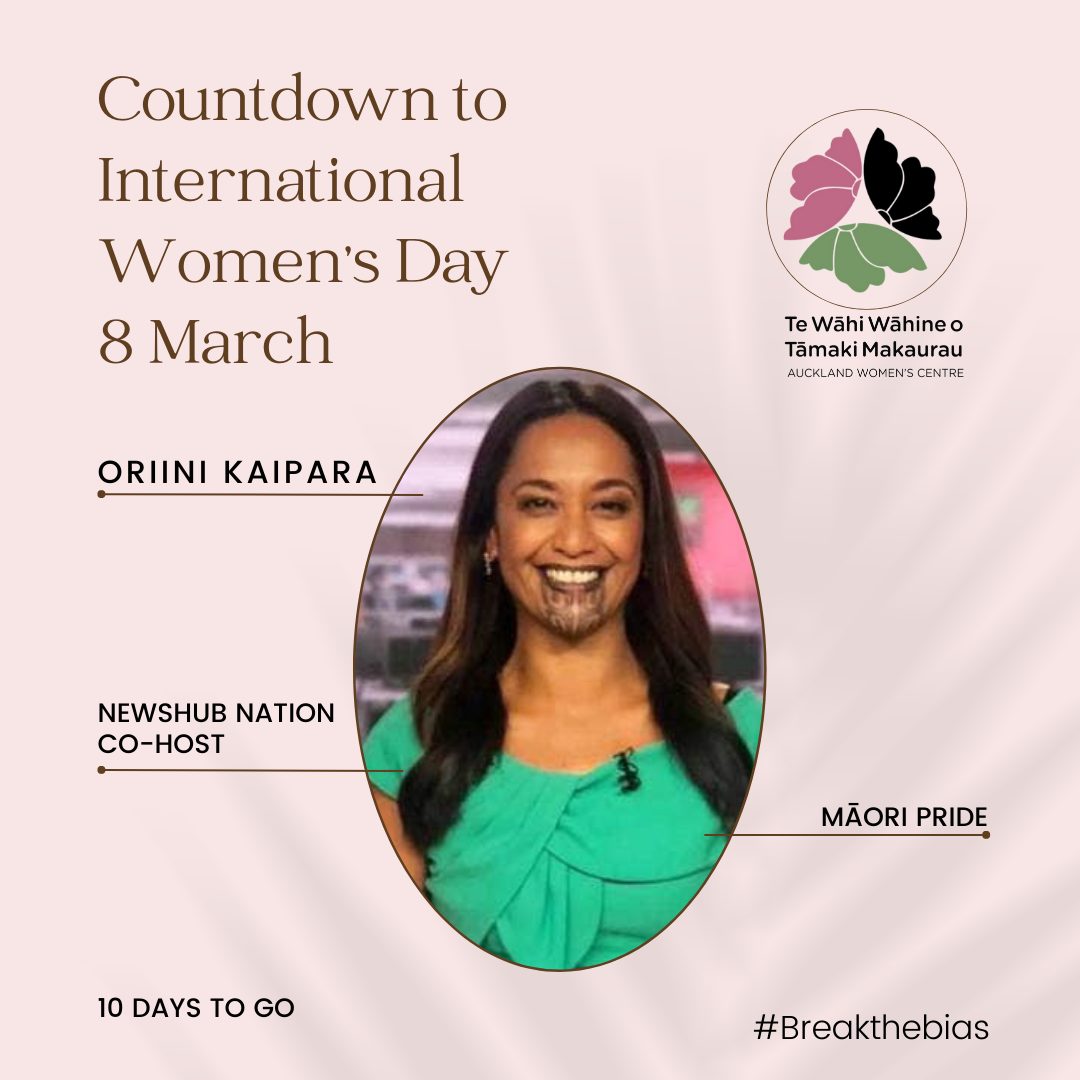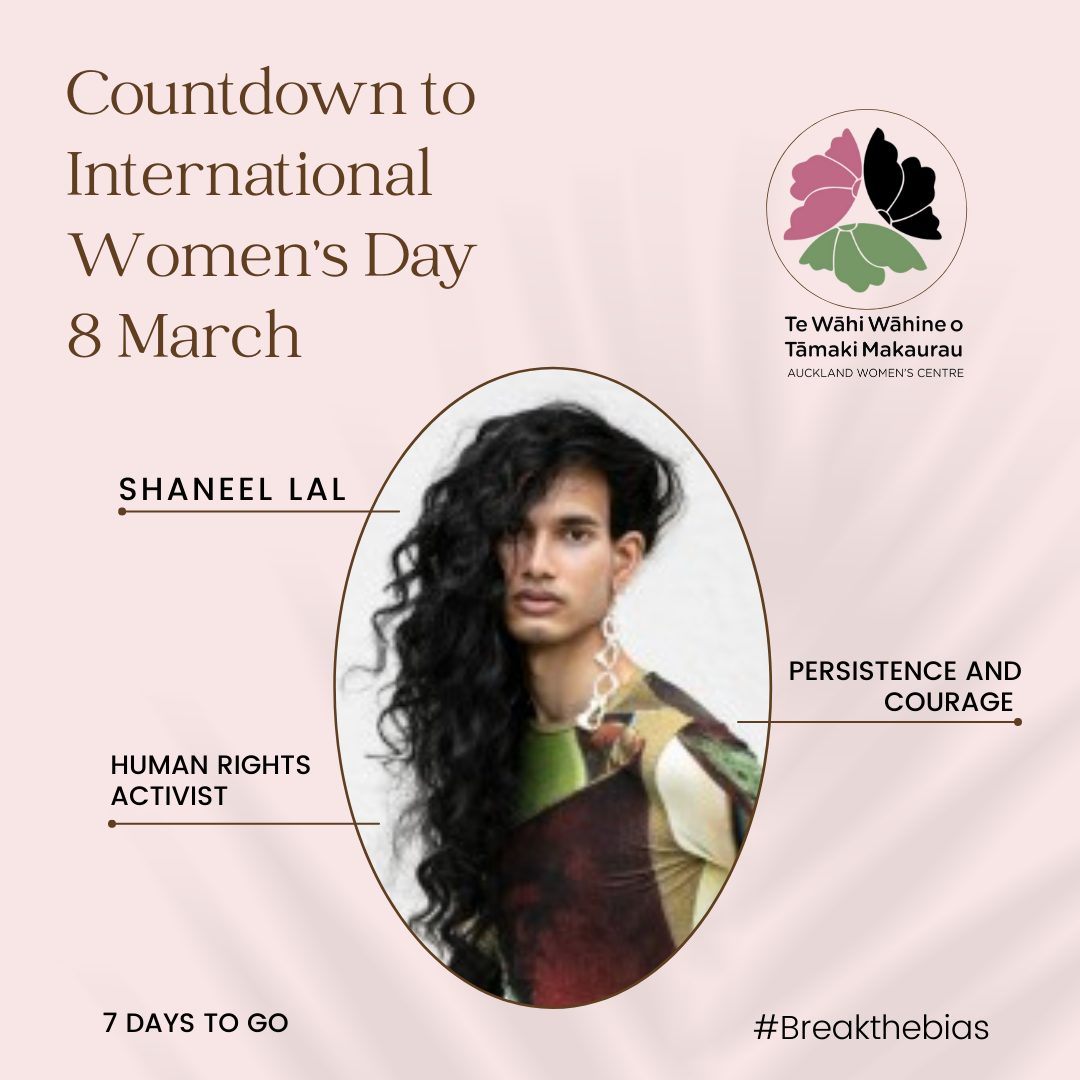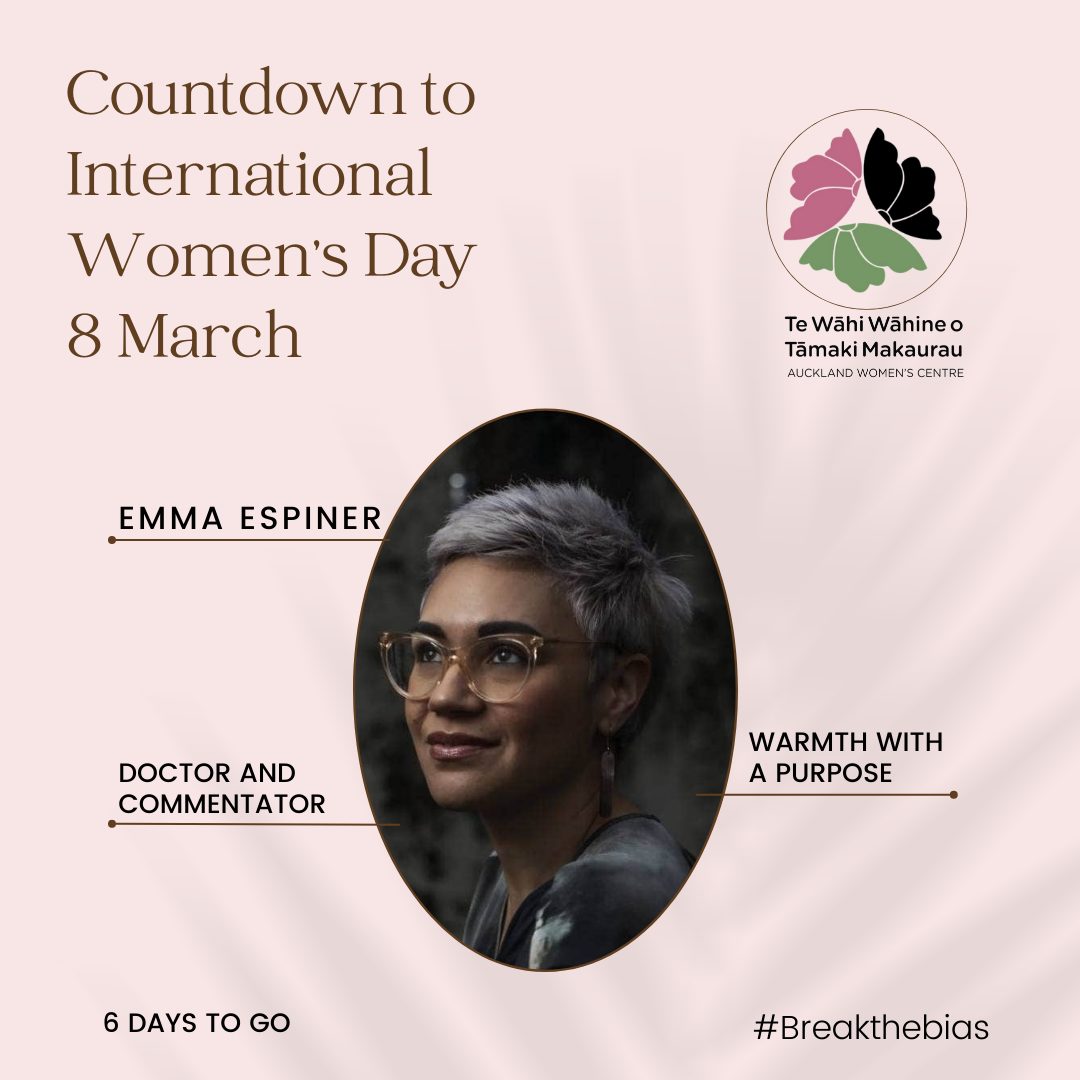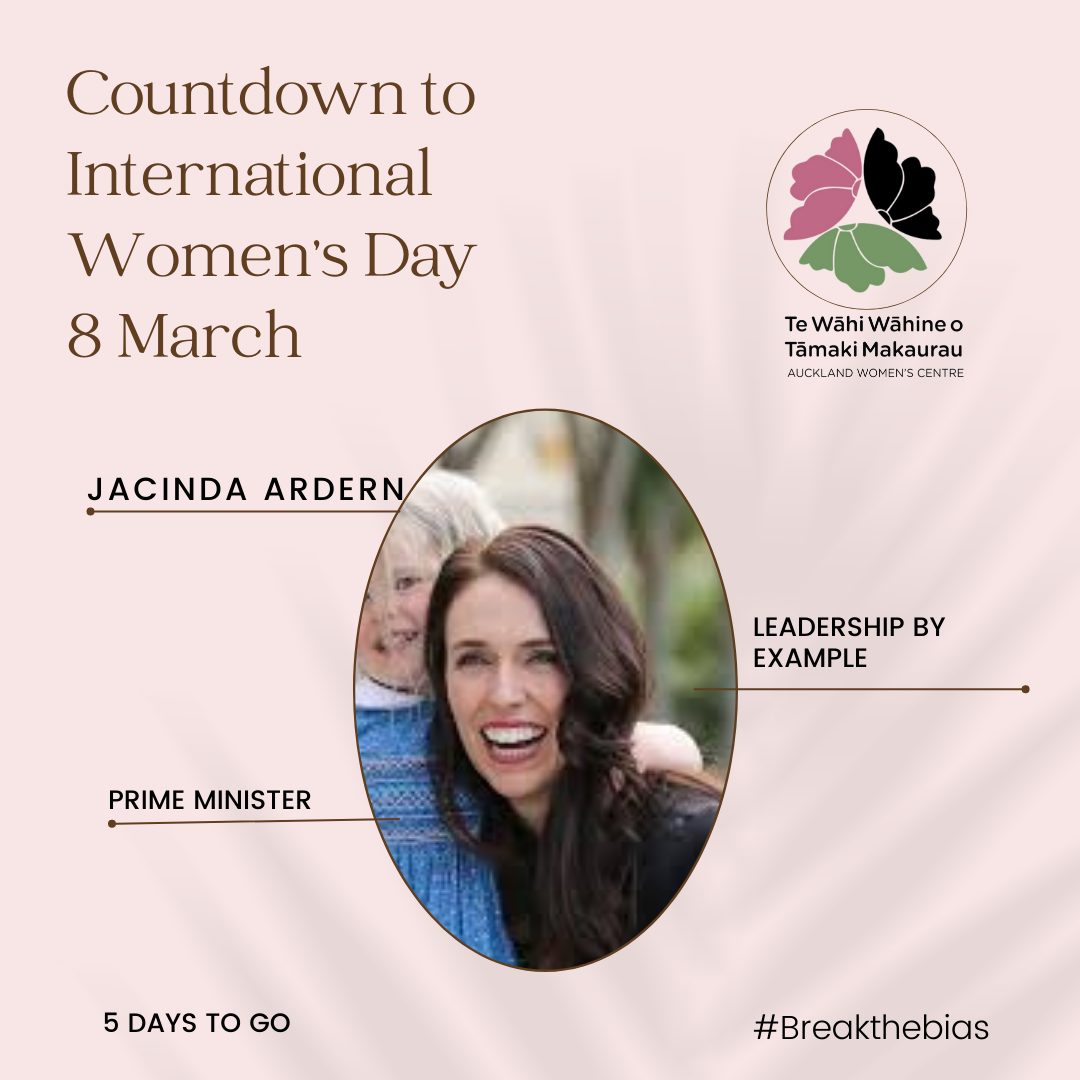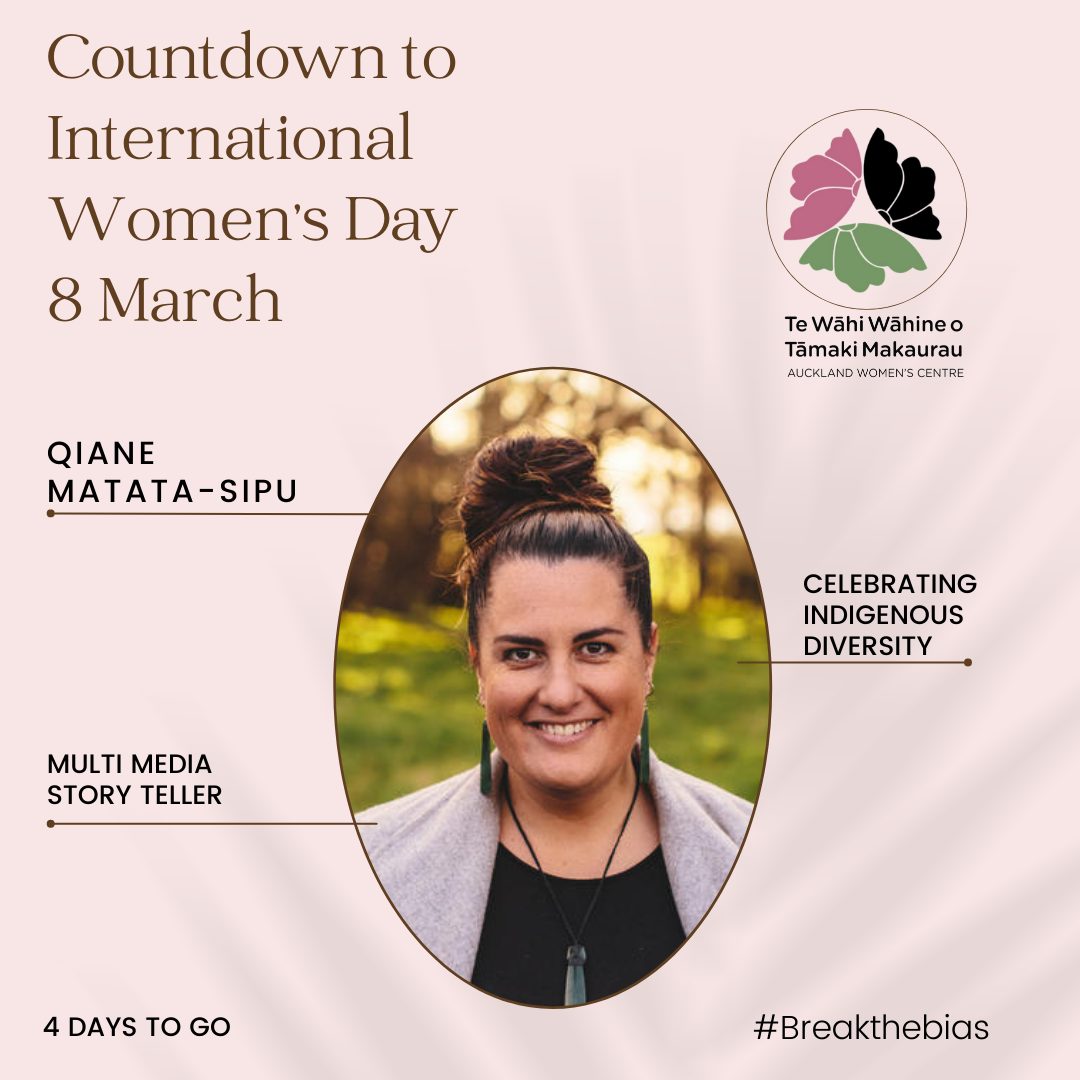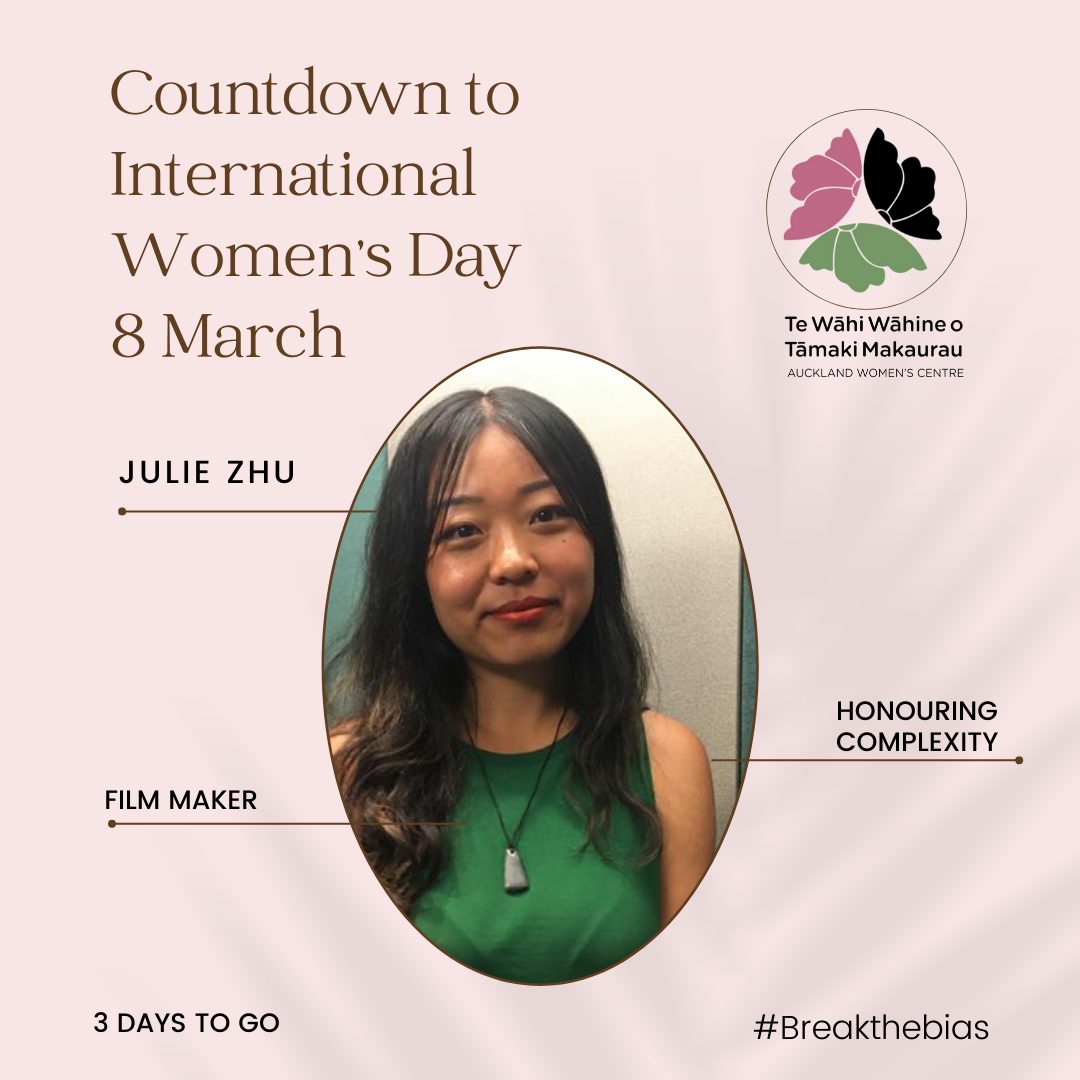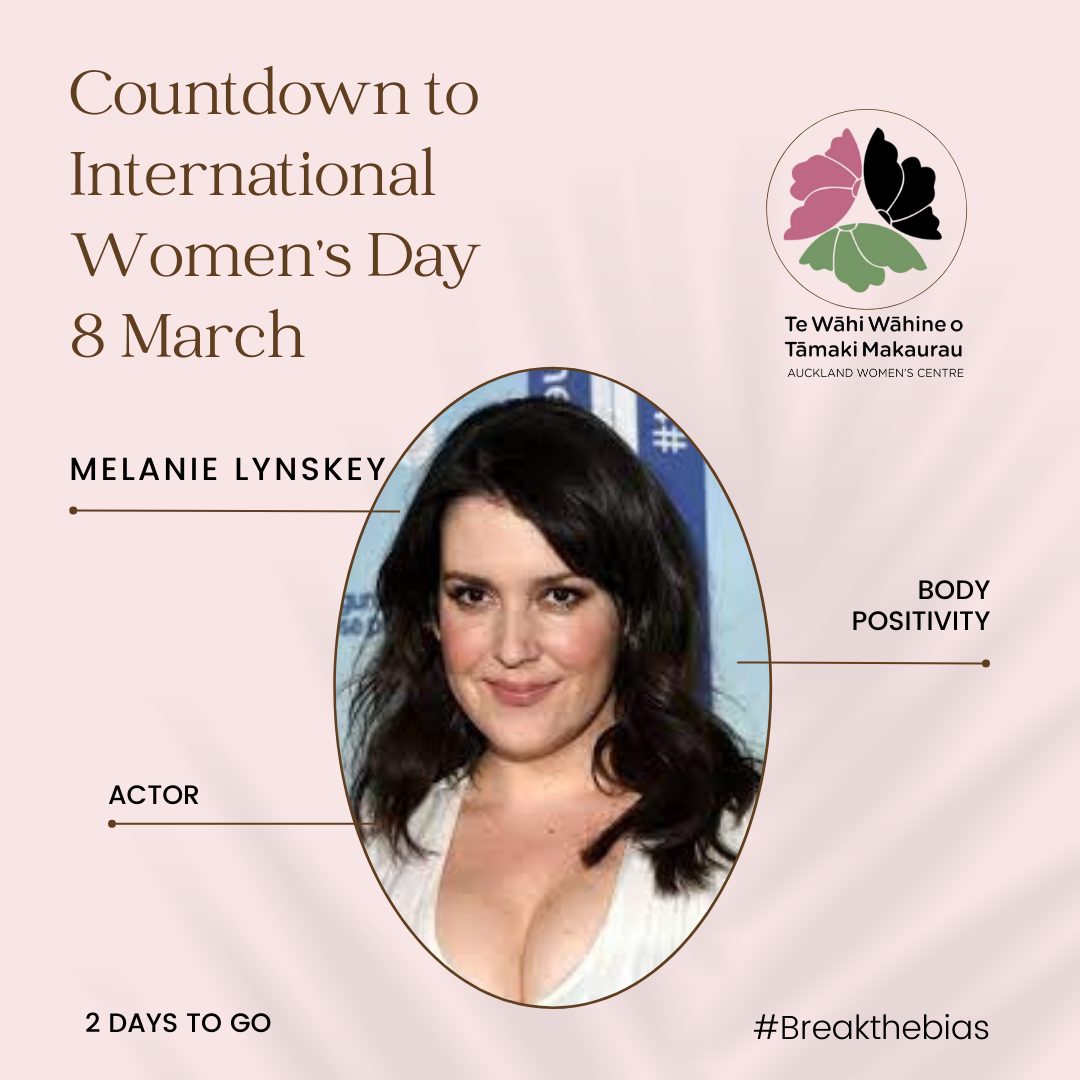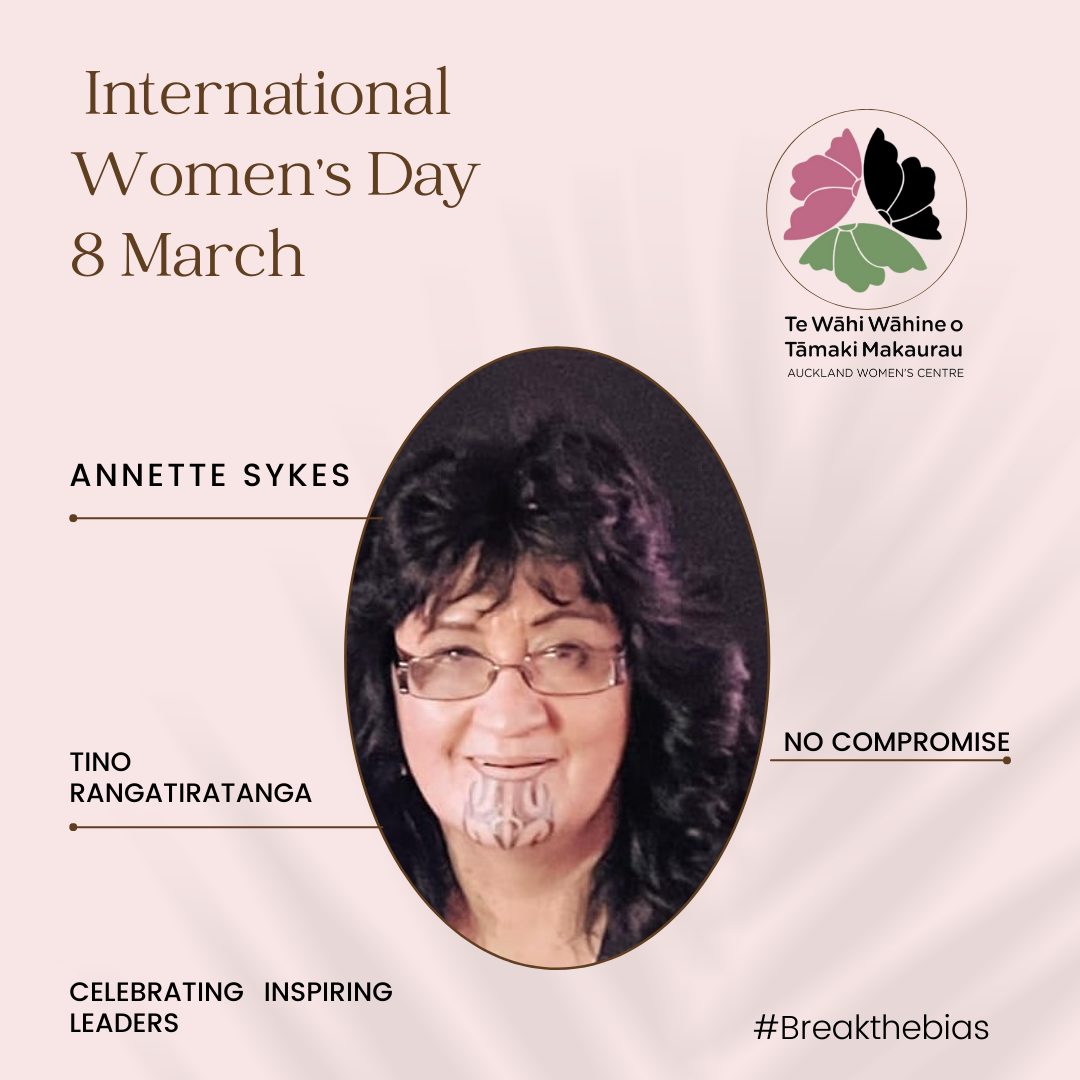A colleague once told columnist, podcaster, reviewer, and Middlemore Hospital doctor Emma Espiner (Ngati Tukorehe, Ngati Porou) that her superpower was “translating Māori stuff for Pākehā”. We’d say it’s also highlighting inequities, and sharing her stories with such kindness and humour that her audiences can’t help but take on board her insights. Multi-talented, Emma started med school aged 30 as she “wanted to have a practical skill for when the zombie apocalypse happens” and as she describes in the award-winning ‘Getting Better’ podcast, it’s one thing to see inequitable life expectancies on a graph but a very different one when seeing it in real time on the wards – particularly if you’re Māori, because that’s whānau. It’s incredibly difficult to make people pay attention to such important, uncomfortable topics, but Emma does it seemingly effortlessly. Gently and effectively pulling people out of their ignorant bliss – this is an important way to help #breakthebias. And hurrah! Emma, wearing all her different pōtae, will be sharing her wit and warmth with us, in kōrero with Stacey Morrison online 7pm Tuesday March 8. Join us! Read more here: https://awc.org.nz/emma/

